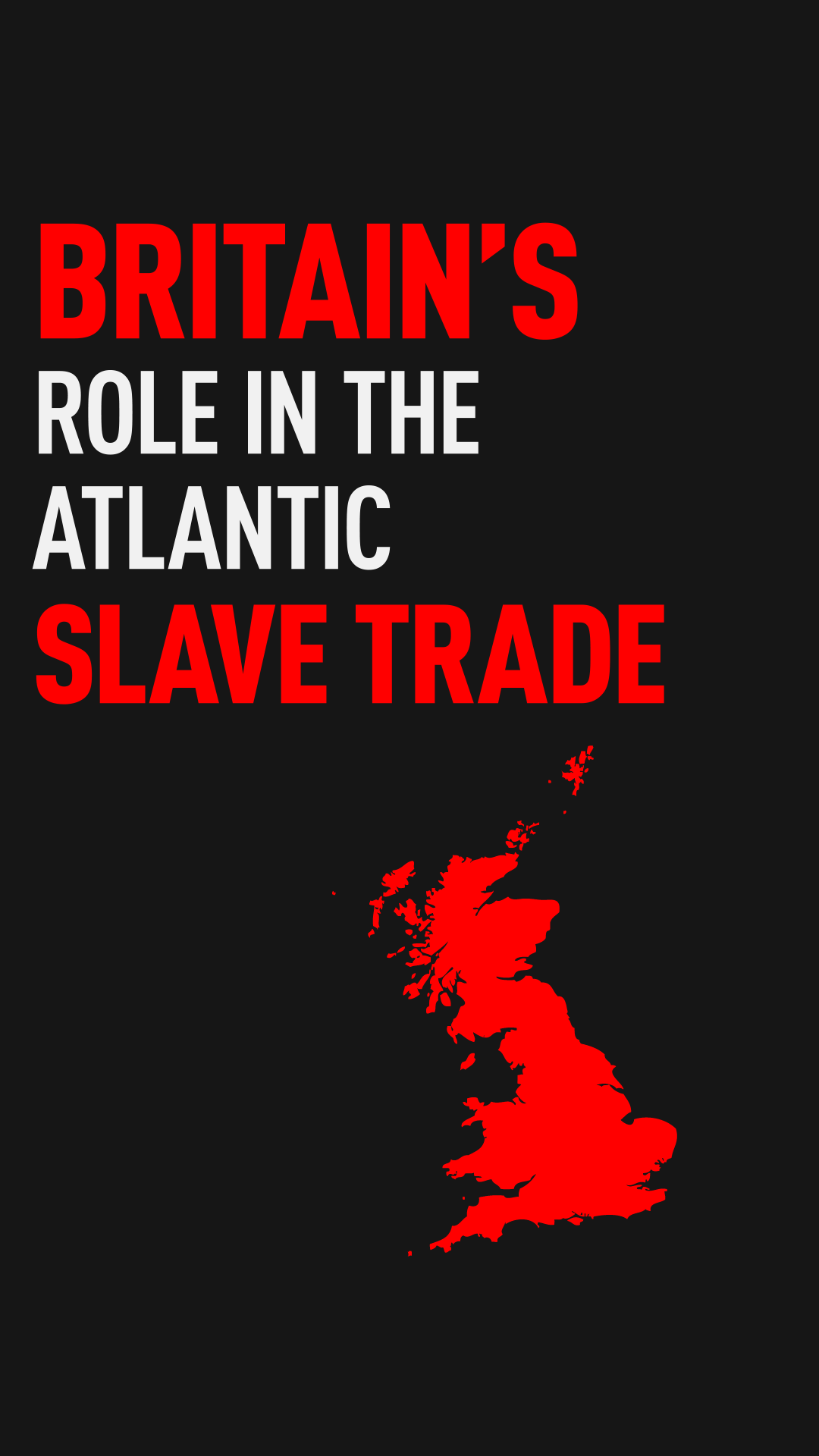00:40

The history of Britain's involvement in the Atlantic slave trade was brought into focus over the weekend when Black Lives Matter protesters in Bristol tore down the statue of slave trader Edward Colston and dumped it in the city's harbor.
Defaced statues, both in the U.S. and Europe, of those connected to the slave trade or racism, have become a reoccurring sight in the international protests triggered by the police killing of George Floyd in Minneapolis.
READ MORE: Slave trader statue torn down as protests continue at George Floyd death
The action of the protesters in Bristol, while condemned by both the Conservative and Labour political parties, has sparked debate around Britain's historical involvement in the slave trade. Activists, many of whom have campaigned for years on the issue, have set their sights on the removal of various statues across the country including that of 18th century slave-owner Robert Milligan in London, and Victorian-era colonialist Cecil Rhodes in Oxford.

Protesters in Bristol roll the statue of Edward Colston to the harbor.
Protesters in Bristol roll the statue of Edward Colston to the harbor.
What was Britain's role in the slave trade?
Portuguese rivalry
Britain and Portugal were Europe's largest slave-trading countries, taking advantage of their geographical position on the Atlantic. In the 16th century, Elizabethan naval commander, John Hawkins, would hijack Portuguese slave ships that had hundreds of slaves on board. Hawkins would then sail the ships to the Americas where he would sell the surviving Africans in slave markets, returning to Britain with huge profits for his merchant backers.
Portugal and Britain would continue to be the dominant European forces in the slave trade, jointly accounting for 70 percent of all Africans transported to the Americas.
Royal African Company
The British slave trade accelerated beyond piracy in the 1600s, when the nation claimed parts of the east coast of North America. Much of the trade was conducted by mercantile companies, one of the earliest and most successful was the The Royal African Company.
Set up by King Charles II in 1660, the company transported an estimated 212,000 slaves, of whom 44,000 died on route. Initially run by Charles's brother, the future James II, it operated mainly on the coast of modern day Ghana, eventually abandoning the slave trade and moving into gold and ivory in 1731.

An undated image showing a circa 1780 newspaper advertisement by a slave-trading dealership announcing the arrival of African slaves to the American colonies at Ashley Ferry outside Charleston, South Carolina. /AP Photo
An undated image showing a circa 1780 newspaper advertisement by a slave-trading dealership announcing the arrival of African slaves to the American colonies at Ashley Ferry outside Charleston, South Carolina. /AP Photo
The Triangular Trade
By the 18th century the slave trade was a major part of the British economy, funding the development of port cities, including Bristol, Liverpool and Glasgow. Ships, loaded with goods, would disembark from Britain. Upon reaching the shores of West Africa they would trade the goods with local rulers in exchange for slaves, invariably captured from the continent's interior.
The slaves would be transported to America, although a large number of them died along the way, where they would be sold to plantation owners in exchange for sugar, alcohol and tobacco. The ships, now full of American produce, would then return to Britain, where the items would be sold.
Along with statues of slave owners and streets named after them, references to the slave trade including depictions of manacled African children were engraved on the Martins Bank Building in Liverpool.

Historian Eric Lynch stands next to a stone carving outside the Martins Bank Building in Liverpool. /AP Photo/Dave Thompson
Historian Eric Lynch stands next to a stone carving outside the Martins Bank Building in Liverpool. /AP Photo/Dave Thompson
Abolition
English Quakers and other radical Christian groups campaigned against slavery in the 16th century, forming the basis of the anti-slavery movement that gained traction from the late 1700s.
British involvement in the slave trade had been going on for roughly 200 years when parliament passed the Slave Trade Act of 1807, making the selling and buying of slaves illegal across the Empire. It was not until 1833 that it became illegal to own slaves outright after abolitionist William Wilberforce successfully passed an act three days before his death.
After the act's passing, slave owners were paid approximately 20 million pounds, around 40 percent of the British government's national budget. The debt accumulated from the payment was being paid off by the British taxpayer until 2015.
Britain's abolishment of slavery was significantly ahead of its most significant former colony in the Americas. The U.S.'s northern states had gradually outlawed slavery from 1805, but it took until 1865, and a brutal civil war fought on the issue, to end the practice outright.
Enforcing anti-slavery laws
Caught slavers were punished by issued fines until the Slave Trade Felony Act 1811, which made overseas slave trading a felony act throughout the British Empire. After which, the Royal Navy established a squadron to patrol West Africa, suppressing the slave trade. Between 1808 and 1860, the West Africa Squadron captured 1,600 slave ships and freed 150,000 Africans.

Prince Charles said Britain's involvement in the slave trade has left an 'indelible stain' on the world during a trip to Ghana. /KGC-22/STAR MAX/IPx
Prince Charles said Britain's involvement in the slave trade has left an 'indelible stain' on the world during a trip to Ghana. /KGC-22/STAR MAX/IPx
While the involvement of his predecessors has yet to be formally acknowledged by the Crown or apologized for, in 2018 Prince Charles told an audience in Ghana that "while Britain can be proud that it later led the way in the abolition of this shameful trade, we have a shared responsibility to ensure that the abject horror of slavery is never forgotten."